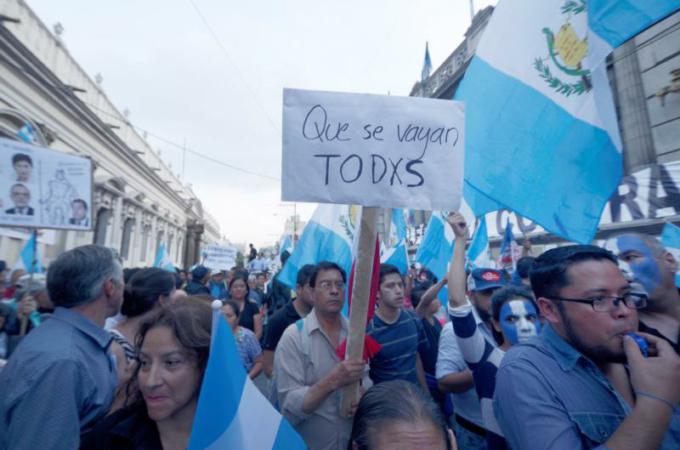Guatemalan bishops condemn congress' attempt at imposing impunity
GUATEMALA CITY (CNS) -- The Guatemalan bishops' conference has condemned the country's congress for gutting campaign finance laws at a time when accusations of corruption and electoral irregularities are implicating the president and others in the political class.
The bishops expressed "their condemnation of this unspeakable and arbitrary act, which promotes impunity and rewards corruption," along with "their condemnation of one of the most ignominious acts committed by congress." The document was published Sept. 14 and signed by conference president, Bishop Gonzalo de Villa Vasquez of Solola-Chimaltenango.
On Sept. 13, lawmakers in Guatemala quickly approved a law that softened penalties for campaign finance violations and limited the kinds of contributions that could be investigated. Those convicted of crimes could pay nominal fines rather than serve prison sentences.
Guatemala's constitutional court provisionally suspended the law Sept. 14, but protesters had taken to the street anyway -- something encouraged by the bishops' statement. Social media critics used the hashtag "Black Wednesday," to mark the day the law was approved.
President Jimmy Morales, a comedian-turned-politician, canceled official celebrations for the Sept. 15 Independence Day, citing street protests. Such protests and investigations by the International Commission Against Impunity in Guatemala, known by its Spanish acronym, CICIG, forced Morales' predecessor from office in 2015 -- and helped pushed Morales, a political neophyte, into power on a platform of clean government.
Morales, however, has been caught up in scandals, including accusations his campaign did not declare all campaign donations.
The CICIG, established by the government and United Nations to pursue impunity after the country's civil war, also has presented evidence of tax evasion against the president's brother and son.
Morales recently tried to expel the CICIG commissioner from the country -- a move condemned by many in Guatemala, including the bishops -- but was blocked by the courts.



















